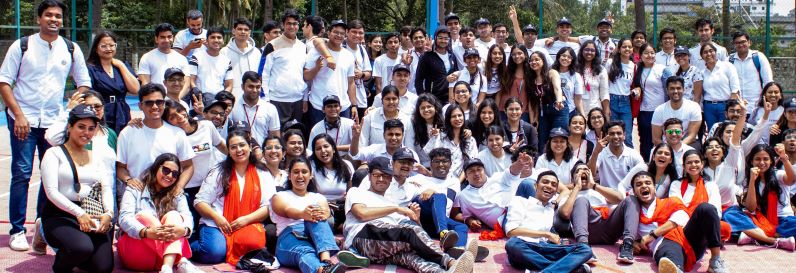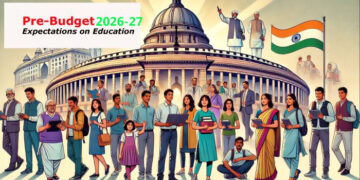By Autar Nehru
On November 7, 2023, the Government of India notified the University Grants Commission (Setting up and Operation of Campuses of Foreign Higher Educational Institutions in India) Regulations, 2023, which emphatically permit entry of foreign higher education institutions (HEIs) into India to set up own campuses on Indian soil for the first time in 76 years after country’s independence in 1947. This long-awaited reform seeing the light is seen as an interesting development to bolster and globalize Indian higher education at the same time to harness its demographic opportunity.
India has seen incremental increase in internationalization of its higher education through various kinds of arrangements for many years, however, in the past couple of years, there is a serious rethink and effort at pulling off higher education system to deliver on scale and quality using this instrument. The planners know that more than 260 million children are in schools climbing up the grades and about half 40-50% will seek a pathway to higher education in next decade and half. The National Education Policy (NEP) 2020, itself has a target of 50% GER in higher education. The current capacity of 1200 universities and 44,000 colleges is far lesser than needed, so internationalization is one of the strategies to increase the capacity and also importantly to foster a culture of quality and expose students to research and other best pedagogies.
Entry of foreign HEIs in droves isn’t expected immediately but a historic beginning has been made. The prospect of having these HEIs isn’t entirely being seen as a welcome development, rather India’s private HEIs and then public HEIs, have to worry a lot in terms of conflicts of interest, parity issues, ‘corporate wars’, and competitions in student and faculty acquisition. However, the policy makers have cleverly inserted a clause for joint ventures between domestic and foreign players, which may pave way for more win win situation given the huge investments needed to set up new campuses.
Historically, post-independence, India’s constitutional commitment to make education accessible and affordable has had its fair share of successes, however, its corresponding failure in increasing spend on education (Indian spends 2.9% of GDP on education) has left education in crisis of demand, quality and credibility. It has also perpetuated poor economic growth and human capital. Parallelly the liberalization policy of 1990s and the consequent prosperity has lifted a large number of people and spiked their aspirations for seeking good education abroad. The number of students going overseas has crossed 1.3 million mark and according to estimates Indians studying abroad would be spending about $80 billion, which many would say is India’s loss due to lack of higher education capacity and quality in the country.
It was in this backdrop that the idea of attracting foreign universities was mooted first by the National Knowledge Commission in 2006 and then building on discussions around it, the Congress-led UPA-2 in 2010 had introduced The Foreign Educational Institutions (Regulation of Entry and Operations) Bill, 2010 in the Parliament but was vehemently opposed by both the BJP and the left leading to a stalemate over its prospect and eventual killing of it.
That fait accompli, however, was completely reversed by the National Education Policy (NEP) 2020 that states: “High performing Indian universities will be encouraged to set up campuses in other countries, and similarly, selected universities e.g., those from among the top 100 universities in the world will be facilitated to operate in India. A legislative framework facilitating such entry will be put in place, and such universities will be given special dispensation regarding regulatory, governance, and content norms on par with other autonomous institutions of India.”
Armed with NEP recommendation, the UGC, in January 2023 began the process of framing regulations for entry of foreign higher education institutions (FHEIs) with the draft regulations and by October finalized them after providing for a window of feedback. The Government instead of going through the parliamentary route took a simpler way of UGC exercising the powers conferred by clause (j) of section 12 read with clauses (f) and (g) of sub-section (1) of section 26 of the University Grants Commission Act, 1956 (3 of 1956), the University Grants Commission to make them legal.
Under these new regulations, top 500 in the overall category of global rankings (such as THE, QS) at the time of application, or having secured a position within the top five hundred in the subject-wise category of global rankings at the time of application or possessing outstanding expertise in a particular area will be eligible to set up their campuses in India. UGC through a ‘Standing Committee’ will be the single window application cum regulating authority for interested applicants. Online or in Open and Distance Learning modes are not permitted under these regulations. However, lectures in online mode not exceeding 10% of the programme requirements may be allowed.
Foreign HEIs under these regulations are required to have the physical, academic and research infrastructure and facilities required to conduct its academic and research programmes in its campus in India. Foreign HEIs can acquire properties, set up joint ventures but all will have to be in the ambit of India’s laws namely, the Foreign Exchange Management Act,1999 (42 of 1999) or the Foreign Contribution (Regulation) Act, 2010 (42 of 2010). Also, they can set up campus on its own or in collaborations, if they are meeting the criteria which include having a more 50% stake in case of joint ventures with domestic players. They have to make sure not to offer any such programme of study which is contrary to the standards of higher education in India or contrary to the sovereignty and integrity of India, the security of the State, friendly relations with foreign States, public order, etc.
While these regulations haven’t evoked any considerable opposition or protest unlike the past, the issues of autonomy, fee, faculty recruitment, commodification of education etc., which were the bone of contention and had become political issues around 2010, are still the very issues are being looked at with interest by experts. As per statistics worldwide there are about 300 overseas campuses of FHEIs operating mainly in China, UAE, Qatar, and Malaysia in post-graduate and doctoral degree program space indicating that foreign universities are looking at research opportunities that allows them to attract and retain good faculty. India, which spends less than 1% of its GDP (0.8%) on research, still remains unattractive for top universities. So, the fear is tier 2 and tier 3 universities with an eye on Indian market may be interested in India, which may not add any significant value to premise of making Indian higher education qualitative and competitive. “We certainly don’t need teaching universities from foreign countries as it won’t help in vitalizing our higher education and infuse that institutional and quality culture which we expect from entry of top foreign universities. Faculty recruitment and autonomy and rules besides how it impacts UGC’s own rules for domestic HEIs is an area, which I think is crucial and need more clarity,” says Prof Sudhir Sopory, form VC JNU who was one of the witnesses deposing before the parliamentary standing committee on HRD on foreign universities bill and someone who was in favor of allowing top 100 universities. According to Prof Sopory, having foreign faculty has been a legal challenge in India and freedom and choice of faculty is critical for interest and success of FHEIs if they come to India.
However, experts believe, India could throw up a new model and succeed in its pursuit. “We know how challenging it is to set up universities from state to another and I am sure it is same for foreign universities as well, so I am optimistic about collaboration opportunities that our universities will have as a result of these landmark regulation regulations,” said Dr. Vidya Yeravdekar is the Principal Director of Symbiosis Society, and Pro Chancellor of Symbiosis International University.
UGC chairman Prof Jagadesh Kumar has been indicating in his interviews on the subject that a group of foreign universities has been talking to UGC and exploring the opportunity. He is confident that in next two years, country will see some of the initial foreign universities coming up in India. With two Australian universities Deakin University and University of Wollongong opening their branch campuses in GIFT city of Gujarat (though not under these new regulations), the experimentation has begun. It gets more interesting from here on!















